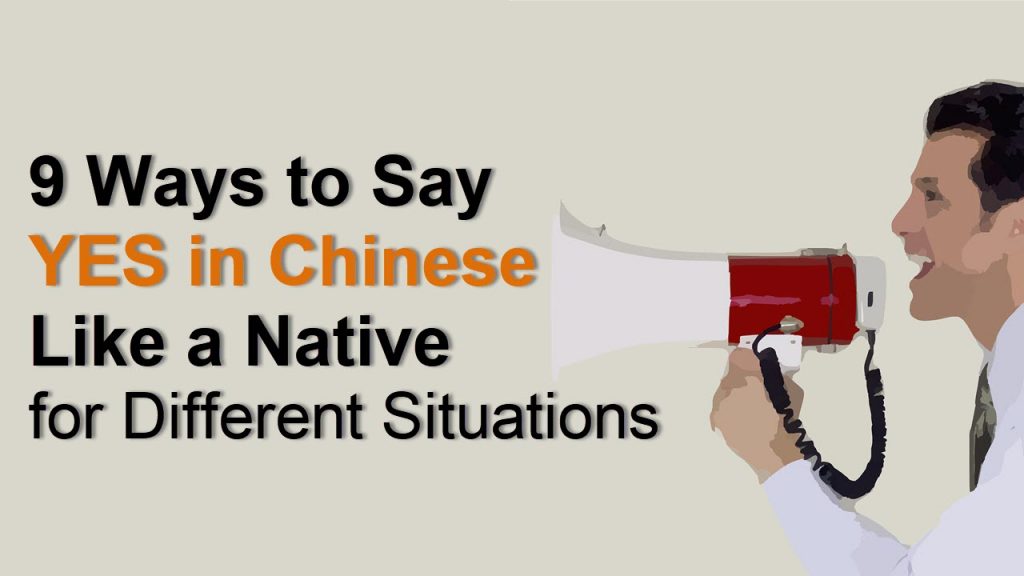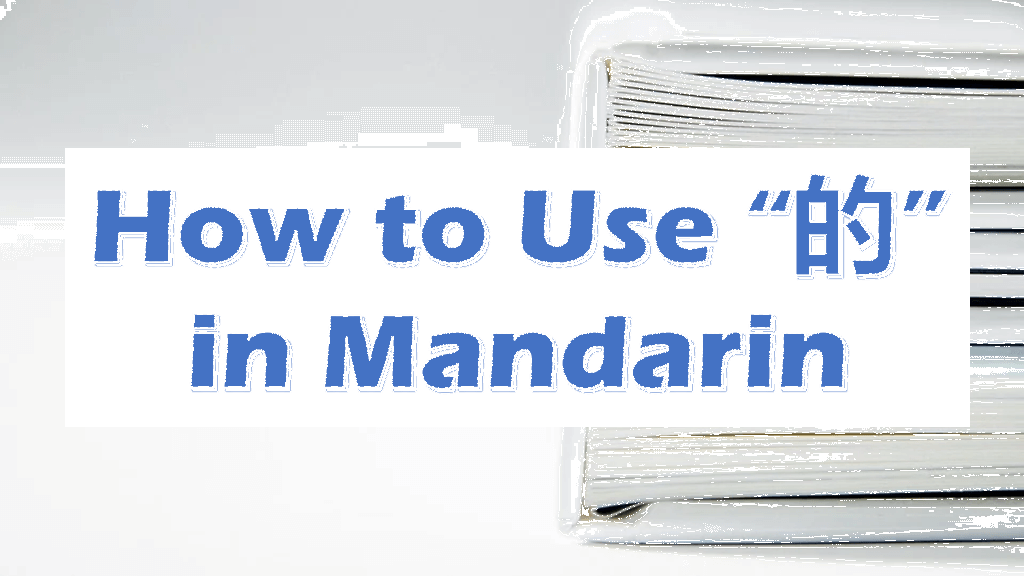
Good communication is inseparable from the appropriate response of both sides to each other’s words. When people say thank you to you, you need to respond out of courtesy. In English, people respond with words like “you’re welcome”, but how to respond in Chinese? You may have learned that “you’re welcome” is “不客气(bú kè qì)” in Chinese. In fact, there are many other ways to express “you’re welcome” in Chinese. This article introduces nine of them.
To learn more authentic expressions spoken Chinese, you can check out our Spoken Chinese course.
1. 不客气(bú kè qì)/客气什么(kè qì shénme)
不客气(bú kè qì) is a formal way to say you’re welcome in Chinese. “客气(kè qì)” means polite or courteous. When you say “不客气(bú kè qì)” to someone, you mean that they don’t have to be so polite. It is commonly used for people you are not familiar with. “客气什么(kè qì shénme)” means no need to be so polite. If it is your friends that say thank you to you, you can reply with “客气什么(kè qì shénme)”.
Examples:
A: 帮我拿一下包好吗?
Could you help me with my bag?
B: 好的。
Okay.
A: 谢谢。
Thanks.
B: 不客气。
You’re welcome.
A: 这么晚了还让你来接我,真是麻烦你了。
I’m sorry to ask you to pick me up so late.
B: 你跟我还客气什么。
There is no need to be so polite to me.
2. 不用谢(bú yòng xiè)/谢什么呢(xiè shénme ne)
When someone thanks you, another reply is “不用谢(bú yòng xiè)” which means “no need to thank me” in English. It is often used with strangers or someone who you barely know. If you know each other very well, you can say “谢什么呢(xiè shénme ne)” to emphasize that you don’t have to say thank you to each other.
For example:
A: 你能把窗子开一下吗?
Could you open the window?
B: 好。
OK.
A: 谢谢你。
Thank you.
B: 不用谢。
No need to thank me.
A: 亲爱的,帮我拿杯水。
Honey, get me a glass of water please.
B: 给你。
Here you are.
A: 谢谢。
Thanks.
B: 谢什么呢。
No need to thank me.
3. 没事儿(méi shì ér)/没什么(méi shénme)
If you just did someone a small favor, you can say “没事儿(méi shì ér)” when they express gratitude to you, “没事儿(méi shì ér)” is equivalent to “no worries”, indicating that doing this favor didn’t bother you. Sometimes we add “不麻烦(bù má fán)” after it.
For example:
A: 多亏你借我的伞,不然我就成落汤鸡了。
Thanks to the umbrella you lent me, or I would have been soaked.
B: 没事儿。
No worries.
A: 太晚了,我开车送你回去吧。
It’s getting late. Let me drive you back.
B: 谢谢, 麻烦你了。
Thank you and sorry for the trouble.
A: 没事儿,不麻烦。
No worries. No trouble at all.
4. 小意思(xiǎo yì sī)/小事(xiǎo shì)
“小意思(xiǎo yì sī)” or “小事(xiǎo shì)” is another expression of “you’re welcome” in Mandarin. They can also be used to respond to thanks for helping someone with something.
Example:
A: 你去丢垃圾吗?
Are you going to take out garbage?
B: 嗯。
Yes.
A: 能顺便帮我丢一下吗?
Could you throw this away for me?
B: 好啊。
Okay.
A: 麻烦你了。
Thank you.
B: 小意思啦。
No sweat.
A: 劳驾,您能帮我们照张相吗?
Excuse me, could you please take a picture for us?
B: 好的。
A: 谢谢您。
B: 小事。
It’s nothing.
5. 举手之劳(jǔ shǒu zhī láo)
“举手之劳(jǔ shǒu zhī láo)” is a Chinese idiom which means that it is easy and effortless to do something.
A: 先生,能帮我把行李放到行李架上吗?
Sir, could you help me put my luggage on the rack?
B: 好的。
Okay.
A: 谢谢你。
Thank you.
B: 举手之劳而已。
No problem.
A: 小辉,能帮我拿一下那本书吗?我够不着。
Xiao Hui, could you help me get that book? I can’t reach it.
B: 行。
OK.
A: 谢谢。
Thanks.
B: 举手之劳。
No problem.
6. 别见外(bié jiàn wài)/你太见外了(nǐ tài jiàn wài le)
“见外” means to regard someone as an outsider. “别见外(bié jiàn wài)” means don’t regard me as an outsider. When people who you know well thank you, you can say “别见外(bié jiàn wài)” to them, which shows you are a good friend to them.
For example:
A: 小丽,昨天谢谢你帮我,这个是我的一点小心意。
Xiao Li, thank you for helping me yesterday. Here’s a little something for you.
B: 哎呀,你太见外了。
Oh, you are regarding me as an outsider.
A: 芳芳,这个包那么重,我来帮你拿吧。
Fangfang, this bag is so heavy. Let me help you with it.
B: 真是太谢谢你了。
Thank you so much.
A: 别这么见外。
Don’t regard me as an outsider.
7. 咱俩谁跟谁啊(zán liǎ shéi gēn shéi a)
“咱俩谁跟谁啊(zán liǎ shéi gēn shéi a)” can be translated into “not a big deal, we’re friends.” It is used between close friends.
Examples:
A: 我能用一下你的相机吗?
May I use your camera?
B: 你用吧。
Sure.
A: 谢谢。
Thanks.
B: 咱俩谁跟谁啊。
Not a big deal, we’re friends.
A: 兄弟,能问你借200块钱吗?我有急用。
Bro, may I borrow 200 yuan from you? I have an emergency.
B: 给。
Here you are.
A: 太谢谢了。我明天就还你。
Thank you very much.
A: 咱俩谁跟谁啊。
Not a big deal, we’re friends.
8. 应该的(yīng gāi de)
The meaning of “应该的(yīng gāi de)” in English is “that’s what I should do”. When elders or superiors show their appreciation for our help, we can say “应该的(yīng gāi de)” to reply. If you are a shop owner and a customer says thank you to you, you can answer with “应该的(yīng gāi de)”.
A: 小张,这个项目很成功,辛苦你了。
Xiao Zhang, this program is very successful. Thank you for your hard work.
B: 不辛苦,应该的。
Not at all.
A: 您买的东西都已经包好了。
Everything you bought has been packed.
B: 谢谢你。
Thank you.
A: 应该的,请慢走。
Not at all. See you.
9. 你要怎么报答我(nǐ yào zěn me bào dá wǒ)
This phrase translated into English is “How would you return the favor”. If It is our good friends or lovers that say thank you to us, we can joke with them and say, “你要怎么报答我(nǐ yào zěn me bào dá wǒ)?” Be careful not to look too serious when you say this, or the listener may take it seriously.
For example:
A: 丽丽,我的洗发水用完了。
Lili, I’ve run out of shampoo.
B: 用我的吧。
You can use mine.
A: 谢谢亲爱的。
Thanks, sweetie.
B: 你要怎么报答我?
How would you return the favor?
A: 亲爱的,我想喝奶茶。
Honey, I want to drink milk tea.
B: 我去给你买。
I’ll go buy it for you.
A: 哇,谢谢你,亲爱的。
Gee, thank you, honey.
B: 你要怎么报答我?
How would you return the favor?
A: 分你一点。
I can share it with you.
Conclusion
These are the nine ways to say “you’re welcome” in Chinese. Have you learned all these expressions? Try to use them when talking to Chinese people. Don’t worry about making mistakes, as most Chinese people will be glad to help you learn how to use them correctly. If you know more Chinese expressions like “bu ke qi”, please share with us in the comments section.






Comments